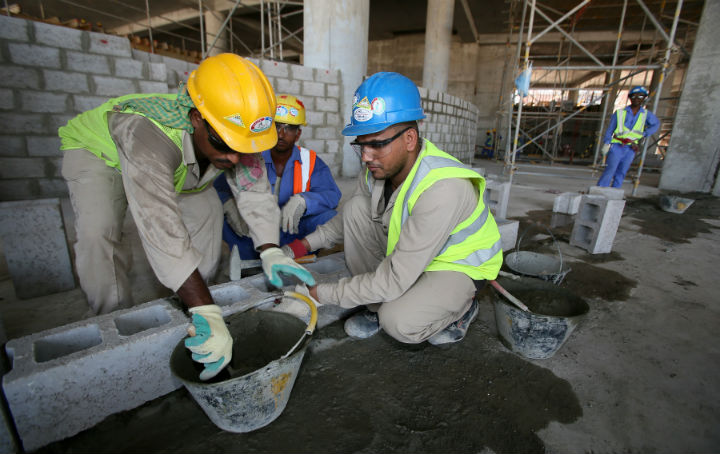Faced with criticism from international human rights groups, Qatar promised in February a new Wage Protection System would be put into place within six months, to ensure salaried migrant workers would get paid on time. But according to reports published Wednesday — a day after the system was planned to go into effect — that won’t happen until November.

According to Qatar’s The Peninsula, several companies weren’t prepared to instate the new system and there has been confusion over when exactly the legislation would go into force.
READ MORE: Here’s why critics don’t want Russia and Qatar to host the World Cup
Although Qatar’s emir signed the legislation on February 18, amid criticism over the treatment of workers constructing facilities for the 2022 FIFA World Cup, Agence France-Presse reported laws can only be enacted once they appear in Qatar’s “Official Gazette”. That means the Wage Protection System legislation would have been enacted when the Gazette was published April 2 and that it would actually come into play October 2.
But “no start date was formally recognized, when the law was published,” according to AFP. “And under the constitution if no date is specified, an extra month is added. Coupled with the six-month grace period, this means a start date of November 2.”
The new system is meant to ensure workers are paid on a monthly or semi-monthly basis and that their salaries will be electronically reported into their bank accounts.
Companies that don’t abide by that rule could face fines up to 6,000 Qatari riyals (CDN $2,169) and be prohibited from taking on new employees.
But, some still have concerns about just how effective the new system will be.
“Overall, the proposed changes are welcome, but they are of limited scope, have yet to materialize and it’s questionable whether they will come actually into force,” Reuters quoted Amnesty International’s Mustafa Qadri. “The protection system has the potential to be a positive because one of the common complaints among workers is not being paid adequately and/or on time.”
READ MORE: Australian football chief says 2022 Qatar process not clean
Another with the Wage Protection System, according to Qadri, is that hundreds of thousands of Qatar’s estimated 1.6 million migrant workers, casual workers or those who work for smaller companies may still be left without protection.
Qatar is also under pressure to reform its kafala system, which allows companies to prevent foreign workers from changing jobs or even leaving the country without permission. The government has vowed that will happen by the end of this year.
Qadri warned the Wage Protection System is “being used to deflect attention away from the fact that no other reforms have been implemented.”
Qatar has been scrutinized for the conditions at work sites and earlier this year fought back against reports some 1,200 migrant labourers had already died during the construction of World Cup sites and as many as 4,000 lives may be claimed by the time the soccer tournament kicks off in seven years.
Qatar’s government refuted those claims in June and said no lives had been lost “after almost five million work-hours on World Cup construction sites,” Qatar News Agency reported.




Comments